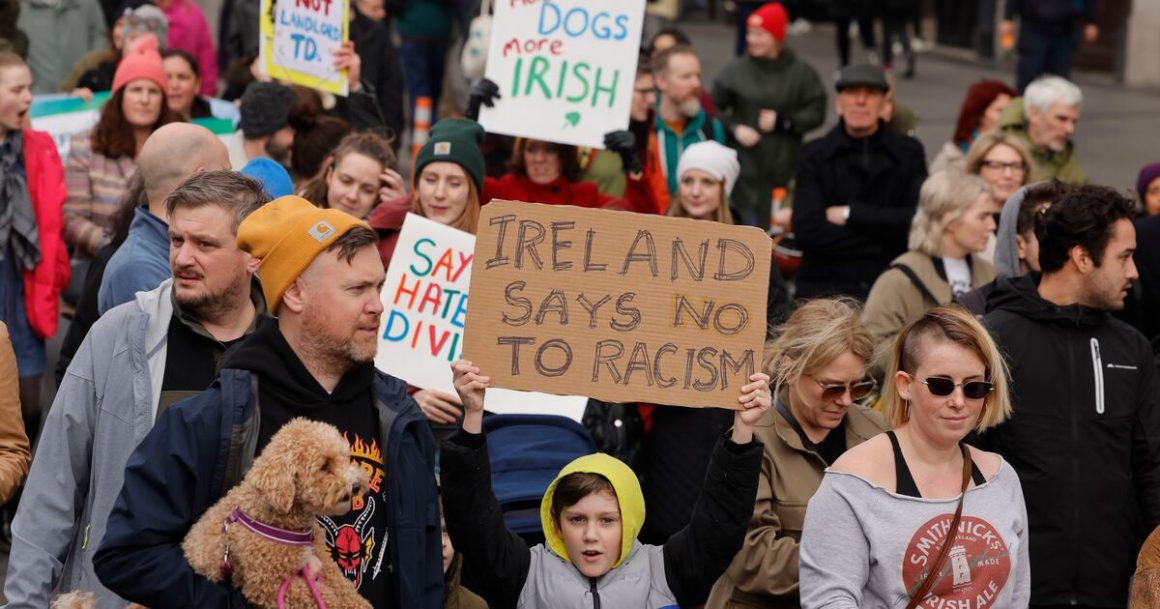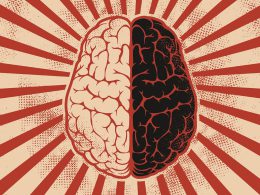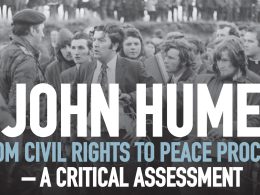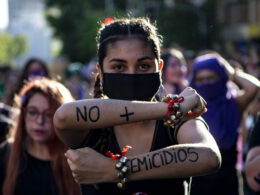By Yash Sinojia
“You can’t be Irish and racist” has gained prominence in recent years as far-right rhetoric and racist sentiments are on the rise and increasingly normalised. While this phrase, echoed in Imelda May’s poem ‘You Don’t Get to Be Irish and Racist’, stems from well-intentioned recognition of Ireland’s colonial history and potential solidarity with others who have faced similar oppression, it ultimately perpetuates a dangerous myth. This notion of Irish exceptionalism is not only misleading but actively harmful to the struggle against systemic oppression, potentially gaslighting people of colour and ethnic minorities who have endured racism in Ireland for decades.
By acknowledging Ireland’s complex history with racism, we can more effectively confront its contemporary manifestations and build a multiracial working-class movement capable of combating the rising fascist threat. This nuanced approach is essential for dismantling the false narrative of Irish innocence and fostering a truly inclusive anti-racist struggle that addresses the systemic roots of oppression within the context of global capitalism.
Rise of the Far-right
The Dublin Riot in November 2023 came as a shocking, unprecedented turn of events to many, but it followed a year of alarming events. Anti-refugee protests and harassment of library workers had become widespread. Refugee accommodation had been picketed, blocked by tractors, and even firebombed. In Ashtown in west Dublin, a homeless encampment was attacked with a baseball bat, and on Sandwith Street, refugee tents were burned. Politicians were hung in effigy outside the Dáil last September, with Dáil staff facing intimidation, abuse, and physical assault in a menacing atmosphere. These incidents signalled the rise of a new far-right movement of hate and division, led by a core of out-and-out fascists.
Many people mistakenly believe that migrant men are entering the country without background checks, receiving free housing, and committing rampant crimes. None of this is true. Direct provision is squalid and miserable. Ireland has stringent vetting processes and is part of the EU’s ‘Fortress Europe’ policy, which has inflicted terrible violence on refugees. The Mediterranean Sea is the deadliest migration route in the world, with almost 30,000 recorded drownings from 2014 to date. Successive Irish governments have supported this policy, and in October 2019, Fine Gael MEPs voted against measures to enhance rescue operations for migrants. Refugees and migrants face the same exorbitant rents and long housing waiting lists as everyone else, but they also encounter language barriers, job discrimination, and racist abuse.
Far-right groups are exploiting systemic failures and social issues to promote division and racism, particularly targeting refugees. They use fear-mongering rhetoric about “unvetted males” to stoke prejudice, despite evidence that gender violence is typically committed by someone known to the victim and is rooted in sexism and machismo – attitudes integral to far-right ideology. These groups have not rallied against the 264 women murdered in Ireland since 1996, mostly by Irish partners or fathers, with 170 dying in their own homes. They ignore high-profile cases of violence committed by Irish nationals, such as Graham Dwyer, the Drogheda gangsters, the Galway man who murdered Manuela Riedo, and the Cavan school principal who killed his family. Instead, they selectively focus on cases involving migrants, revealing their true agenda of xenophobia rather than genuine concern for public safety.
The government’s inadequate response to the housing crisis and underfunding of essential services has created fertile ground for the far-right to spread their poison. Capitalism is a system in decay, marked by turmoil and perennial crises. Its relentless pursuit of profit creates a false scarcity, pitting working-class people against one another for meagre resources. With the injection of racist, misogynistic, and LGBTQ-phobic ideas via social media platforms controlled and profited from by big tech, and the influence of the media and right-wing politicians, the system is creating a perfect storm for the far right to emerge.
Citizenship Revocation Law
Fianna Fáil and Fine Gael both supported the 27th amendment to the constitution, denying citizenship to children of migrants born in Ireland. They continue to defend the brutal Direct Provision system, which forces thousands to live isolated from society for years in overcrowded facilities for less than €20/week. Residents face restrictions on driving, work, and study, and lack cooking facilities, leaving them without access to the food they are accustomed to. Cultural dietary restrictions, such as Muslims avoiding pork, are often ignored. Profits from Direct Provision go to private contractors.
Recently, the government passed a controversial amendment to citizenship laws, raising concerns about racism and discrimination against naturalised People of Colour. The amendment, part of a larger bill, makes it easier and quicker for the Minister for Justice to revoke citizenship on vague grounds, including “national security.” This change was rushed through parliament with minimal scrutiny or public consultation, creating a two-tier citizenship system and implying that naturalised citizens are potential threats rather than equal members of society. This move is a concession to far-right ideologies and continues racist narratives in Irish politics. The government’s actions reflect a broader trend of framing immigration as a problem, despite evidence suggesting that systemic issues like underfunding and wealth inequality are the real causes of social strains. The main opposition party Sinn Féin, which in the past posed as left-wing and adopted anti-racist stance, has also supported the measure, indicating a general rightward shift in Irish politics on immigration issues. Such policies scapegoat immigrants for problems caused by decades of austerity and capitalist policies.
Anti-Traveller Racism
Travellers, an ethnic group only recognised by the state in 2015, have endured centuries of racism and marginalisation in Ireland. They were disproportionately institutionalised in mother and baby homes, barred from academic subjects in schools, and subjected to racist abuse by authorities. In the early 1960s, a report by the Irish government, influenced by big farmers, business interests, and the Church, disgracefully suggested a “final solution” to the “itinerant problem.” This report shaped state policy for decades, leading to the isolation of Travellers on the edges of towns and cities in substandard accommodation.
Travellers face widespread discrimination in education, employment, housing, and access to services. The unemployment rate among Travellers is staggeringly high, reaching 80-87% in both the Republic of Ireland and Northern Ireland. They experience significantly poorer health outcomes, with higher infant mortality rates and lower life expectancy than the general population. Suicide rates are alarmingly high, particularly for Traveller men. Local authorities consistently underspend budgets allocated for Traveller-specific accommodation, and many face daily harassment and discrimination from Gardaí. Traveller racism is so rampant that derogatory slurs against them are used to describe anyone perceived as dangerous, rough or dirty, regardless of their actual background. Established political parties have often used anti-Traveller rhetoric to gain votes. Traveller children face discrimination in schools, with many leaving education before the age of 15.
The Irish government has made significant cuts to Traveller-specific education and accommodation budgets. The 2015 Carrickmines fire tragedy, which claimed the lives of ten Travellers, including five children under nine, exposed the dangerous and overcrowded living conditions many Travellers face due to inadequate accommodation policies. The aftermath revealed deep-seated prejudice when some residents protested against relocating the survivors nearby. Travellers have been subjected to forced evictions and harassment by law enforcement. Despite the recognition of Traveller ethnicity, Travellers continue to face daily discrimination and racism.
Catholic White Supremacy
The Irish state has a long history of oppressing different racial and ethnic groups, a legacy that persists today. Ireland’s mother and baby homes, run by Catholic religious orders, systematically discriminated against mixed-race children and their mothers. Of the 57,000 children born in these institutions over several decades, around 9,000 died, revealing a pattern of neglect and mistreatment. The homes had “reject wards” for children deemed unadoptable, including those of mixed race, disabled, or from the Traveller community. Mixed-race children faced severe discrimination, including being forced to do degrading tasks and experiencing verbal abuse from the nuns. These institutions often separated mixed-race children from their parents, sometimes preventing non-Irish fathers from claiming their children due to illegitimacy laws. Religious agencies even advertised “slightly mixed-race” children for adoption in newspapers, commodifying these children based on their racial features. This systemic racism often robbed mixed-race survivors of their heritage and identity. Despite government investigations and apologies, many survivors feel these actions are insufficient, as the state still controls most of their records. The legacy of institutional racism continues to affect mixed-race Irish people today as they struggle to access information about their origins and heritage.
Rosemary Adasar, a person of colour and a survivor of this racist abuse, aptly pointed out how the state and the Catholic Church fostered racist stereotypes and prejudices: “If you think about it, where would Irish people get that level of racism? They got the racism from the Roman Catholic Church, and their missionaries and their penny for the bloody black babies and images of savagery and fear.”
The Catholic Church, alongside other Christian churches, both in Ireland and globally, promoted the imperialist and racist idea of “the white man’s burden” and the supposed need to bring “Christian civilisation” to the “dark continents” of Africa and Asia. This was a historical justification for colonialism and imperialism. Hence the racist and paternalistic idea of supposedly helping the “black babies” referenced by Adasar. Even though Ireland was historically a country colonised by imperialism, the political representatives of the emerging Catholic capitalist and big farmer class largely supported the British Empire, as long as they gained limited self-government within it. In doing so, they invariably embraced the racist ideology of white supremacy that was part and parcel of imperialism. Many of their offspring also participated in the direct maintenance of imperialist rule, such as in colonial service in India. The most notorious example was Michael O’Dwyer from Tipperary, Governor General of Punjab in India, who was responsible for the horrific Jallianwala Bagh massacre, where around 1,000 unarmed Indians were killed for protesting against British colonial exploitation.
Myth of Irish Exceptionalism
In her insightful critique of ‘What White People Can Do Next’, Emma Dabiri confronts the pervasive myth of Irish innocence when it comes to racism as she observes, “The Irish experience of colonisation and emigration is often invoked to suggest that Irish people couldn’t possibly be racist. This notion of Irish exceptionalism not only elevates the Irish experience of victimhood but also obscures the reality of Ireland’s involvement in systems of racial oppression.” From a socialist standpoint, this exceptionalism can arise from an illusion that prevents a clear understanding of the social and economic dynamics at play and that regardless of Ireland’s history, we, like all countries on the planet, live under a capitalist system that breeds division and hate. By promoting the idea that the Irish are solely victims of oppression, it ignores the historical and contemporary realities of racism within Ireland itself. So while young white Irish people are correct to reject racism, and forge a movement of solidarity based on the shared imperialist oppression they share with people of colour around the world – this cannot be done without first recognising the real racism people of colour have faced throughout the history of the southern Irish capitalist state, and continue to face today.
One excellent example of how this can be done comes from young black Irish people in recent years. The Black Lives Matter movement in Ireland exposed systemic racism and gave voice to a new generation of young people demanding recognition of their complex identities. Young black people born and raised in Ireland demanded to be recognised as both Black and Irish, thereby challenging the narrow, exclusionary notion of Irish nationality perpetuated by Irish capitalism. Young POC highlighted the many racist microaggressions they often face from white Irish people. For instance, being asked “Where are you from?” often followed by “But where are you really from?” or “What is your heritage?” or giving them nicknames, rather than learning to pronounce non-Irish names. This exclusion represents a form of violence through alienation. The Irish experience demonstrates how racism and nationalism intertwine under capitalism, creating artificial boundaries of who belongs. The Black Lives Matter protests of 2020 which highlighted the day-to-day reality people of colour in Ireland face, far from alienating white Irish people, who turned out across the island from Dublin to Dingle, gave many tools to challenge their own unconscious racist biases.
The need for an internationalist, working-class, anti-racist movement
Recognising that racism exists within Irish society is indeed the first crucial step in counteracting it. People of colour and Travellers, who have experienced racism in Ireland not just in the past year of far-right demonstrations, but since the inception of the state, will not likely join a movement that does not recognise this essential fact. This awareness must be coupled with a broader understanding of how racism functions as a tool of capitalist domination. The myth of Irish exceptionalism serves the interests of the ruling class by dividing the working class along racial lines and obscuring the true nature of capitalist exploitation. The experiences of people of colour challenging exclusionary notions of Irish identity reveal the intersections of race, nationality, and class and how working-class people of colour experience double oppression under capitalism, which is reliant both on the exploitation of workers and dividing communities who otherwise might be in solidarity with one another by sowing racist lies.
To effectively combat racism, we must build a mass anti-racist movement that challenges racist lies, challenges Irish exceptionalism, and which takes on the capitalist system. This struggle must unite workers across racial and national boundaries, recognising that the liberation of all oppressed peoples is intrinsically linked to the dismantling of the capitalist system itself. By rejecting Irish exceptionalism and embracing a truly internationalist perspective, we can forge a movement capable of addressing the root causes of racism and economic exploitation, ultimately working towards a society free from all forms of oppression. Only through the establishment of an international socialist society, based on the principles of equality, solidarity, and collective ownership of the means of production, can we hope to eradicate the systemic roots of racism and create a truly just and inclusive world for all.












